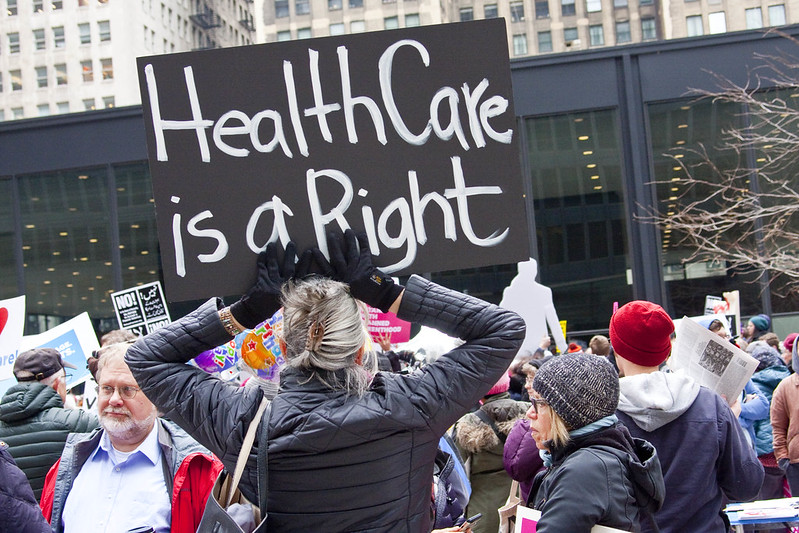La comunicación efectiva en relación a la sensibilización sobre el COVID-19 / The effective of health communication about the awareness of COVID-19 through social media
Resumen
La aún vigente pandemia de COVID-19 ha amenazado las vidas de todas las poblaciones en todo el mundo en la medida en que todo, desde lo económico a lo social se ha detenido. Las redes sociales, tipo Twitter, han sido frecuentemente utilizados para diseminar información esencial relacionada con esta pandemia. Este estudio busca explorar si la gente se apoya en las redes sociales así como los medios masivos de comunicación para informarse sobre esta emergencia. Subsecuentemente, buscamos establecer la efectividad de utilizar las redes sociales como herramienta para este fin. La investigación adopta un diseño de sección transversal en la que 500 cuestionarios fueron distribuidos y respondidos mediante Survey Monkey. Los hallazgos muestran que la gente utiliza las redes sociales mucho más que los medios masivos de comunicación para informarse acerca del COVID-19. Twitter, así como otras plataformas sociales digitales, como Facebook, son mecanismos efectivos de comunicación en la sociedad contemporánea y, por tanto, pueden ser utilizadas de manera efectiva y eficiente por las organizaciones de salud y diversas instituciones gubernamentales para sensibilizar a la población en relación al control de la pandemia mediante el lavado de manos, el uso de cubrebocas y la manutención del distanciamiento social. El artículo termina con diversas recomendaciones para futuros estudios sobre este tema. Palabras Clave: COVID-19, coronavirus, redes sociales, medios masivos de comunicación, comunicación sobre salud y sensibilización. Abstract The on-going pandemic of COVID-19 has threatened the lives of all the populations across the world as everything, ranging from economic to social have since come into a standstill. Social media such as twitter has been used more frequently to disseminate essential information regarding the pandemic. This study aim to explore if social media or mass media are relied on when seeking information about COVID-19, and subsequently establish the effectiveness of using social media as a health communication tool to create awareness of COVID-19 among members of the public. The researcher adopted a cross-sectional study design in which 500 questionnaires were distributed and filled via survey monkey. The overall findings have shown that people used social media more than mass media in seeking information about COVID-19. Twitter handles as well as other digital social media platforms such as Facebook are effective means of communication in the contemporary society and can, therefore, be effectively and efficiently used by healthcare organizations and various government institutions to create awareness on how to control the pandemic through hand washing, wearing of face mask, and keeping social distance. The paper has ended by recommending aspects for future studies on the same topic.Citas
Brindha, M. D., Jayaseelan, R., & Kadeswara, S. (2020). Social media reigned by information or misinformation about COVID-19: a phenomenological study.
Chan, A. K. M., Nickson, C. P., Rudolph, J. W., Lee, A., & Joynt, G. M. (2020). Social media for rapid knowledge dissemination: early experience from the COVID‐19 pandemic. Anaesthesia.
Ferrara, E. (2020). # covid-19 on twitter: Bots, conspiracies, and social media activism. arXiv preprint arXiv:2004.09531.
Hamzah, F. B., Lau, C., Nazri, H., Ligot, D. V., Lee, G., & Tan, C. L. (2020). CoronaTracker: worldwide COVID-19 outbreak data analysis and prediction. Bull World Health Organ, 1, 32.
Hollander, J. E., & Carr, B. G. (2020). Virtually perfect? Telemedicine for COVID-19. New England Journal of Medicine, 382(18), 1679-1681.
Husain, M. S. (2019). Social Media Analytics to Predict Depression Level in the Users. In Early Detection of Neurological Disorders Using Machine Learning Systems (pp. 199-215). IGI Global.
Kelly, K. (2017). A different type of lighting research–A qualitative methodology. Lighting Research & Technology, 49(8), 933-942.
Lewis, M. A., & Dicker, A. P. (2015, October). Social media and oncology: The past, present, and future of electronic communication between physician and patient. In Seminars in oncology (Vol. 42, No. 5, pp. 764-771). WB Saunders.
Lozano, Cristina Moreno. "Seeing COVID-19, or a Visual Journey Through the Epidemic in Three Acts."
Mourad, A., Srour, A., Harmanani, H., Jenainatiy, C., & Arafeh, M. (2020). Critical Impact of Social Networks Infodemic on Defeating Coronavirus COVID-19 Pandemic: Twitter-Based Study and Research Directions. arXiv preprint arXiv:2005.08820.
Murshed, F., & Zhang, Y. (2016). Thinking orientation and preference for research methodology. Journal of Consumer Marketing.
Mustafa, A., Ansari, I., Mohanta, S. K., & Balla, S. (2020). PUBLIC REACTION TO COVID-19 ON TWITTER: A THEMATIC ANALYSIS. EPRA International Journal of Multidisciplinary Research (IJMR), 15, 357.
Niknejad, N., & Amiri, I. S. (2019). Quantitative Research Methodology for Service-Oriented Architecture (SOA) Adoption in Organizations. In The Impact of Service Oriented Architecture Adoption on Organizations (pp. 43-51). Springer, Cham.
Panagiotopoulos, P., Barnett, J., Bigdeli, A. Z., & Sams, S. (2016). Social media in emergency management: Twitter as a tool for communicating risks to the public. Technological Forecasting and Social Change, 111, 86-96.
Park, H. W., Park, S., & Chong, M. (2020). Conversations and medical news frames on twitter: Infodemiological study on covid-19 in south korea. Journal of Medical Internet Research, 22(5), e18897.
Queirós, A., Faria, D., & Almeida, F. (2017). Strengths and limitations of qualitative and quantitative research methods. European Journal of Education Studies.
Ragab, M. A., & Arisha, A. (2018). Research methodology in business: A starter’s guide. Management and Organizational Studies, 5(1), 1-14.
Rahman, M. S. (2017). The Advantages and Disadvantages of Using Qualitative and Quantitative Approaches and Methods in Language" Testing and Assessment" Research: A Literature Review. Journal of Education and Learning, 6(1), 102-112.
Reveiu, A., & Arghir, D. C. (2020). MINING SOCIAL MEDIA TO IDENTIFY THE IMMEDIATE IMPACT OF COVID-19 PANDEMIC ON THE ROMANIAN RETAILERS: EARLY FINDINGS. New Trends in Sustainable Business and Consumption, 1225.
Ting, D. S. W., Carin, L., Dzau, V., & Wong, T. Y. (2020). Digital technology and COVID-19. Nature medicine, 26(4), 459-461.


